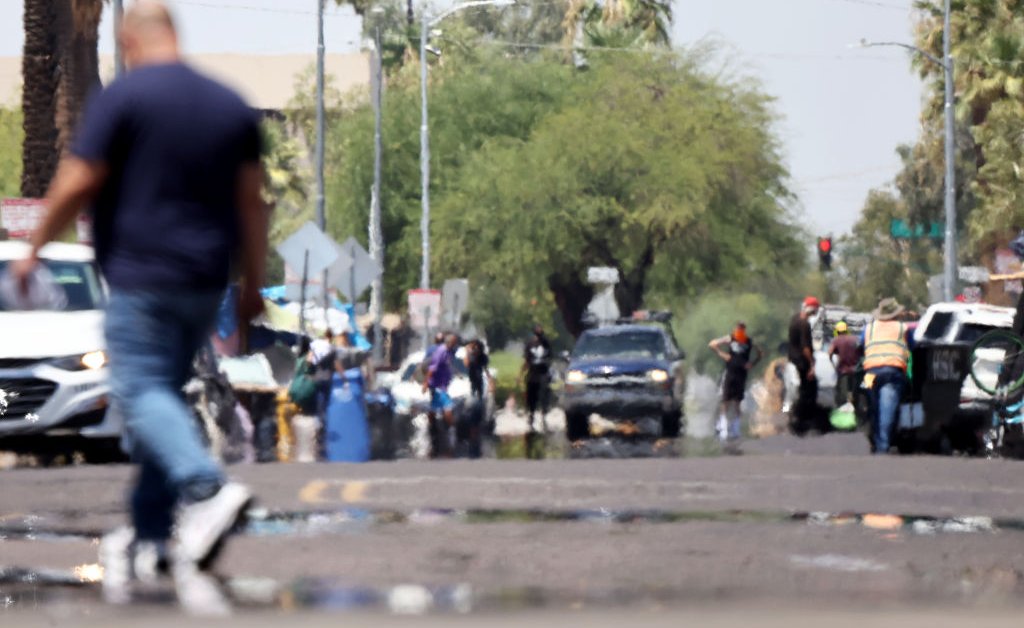Extreme Heat's Impact On Health: A Call For Localized Prevention And Response

Welcome to your ultimate source for breaking news, trending updates, and in-depth stories from around the world. Whether it's politics, technology, entertainment, sports, or lifestyle, we bring you real-time updates that keep you informed and ahead of the curve.
Our team works tirelessly to ensure you never miss a moment. From the latest developments in global events to the most talked-about topics on social media, our news platform is designed to deliver accurate and timely information, all in one place.
Stay in the know and join thousands of readers who trust us for reliable, up-to-date content. Explore our expertly curated articles and dive deeper into the stories that matter to you. Visit Best Website now and be part of the conversation. Don't miss out on the headlines that shape our world!
Table of Contents
Extreme Heat's Impact on Health: A Call for Localized Prevention and Response
Extreme heat is no longer a seasonal inconvenience; it's a growing global health crisis. As climate change intensifies, heatwaves are becoming more frequent, longer-lasting, and more intense, posing significant threats to public health worldwide. This isn't just about uncomfortable temperatures; extreme heat leads to serious illnesses and even death, disproportionately affecting vulnerable populations. This article explores the devastating health impacts of extreme heat and advocates for localized prevention and response strategies.
The Devastating Health Effects of Extreme Heat
The human body is remarkably adept at regulating its temperature, but prolonged exposure to extreme heat overwhelms this natural mechanism. This can lead to a range of health problems, including:
- Heat Exhaustion: This common condition presents with symptoms like heavy sweating, weakness, dizziness, headache, nausea, and muscle cramps. While usually treatable with rest and rehydration, it can progress to more serious conditions if left untreated.
- Heat Stroke: A life-threatening emergency, heat stroke occurs when the body's temperature regulation system fails. Symptoms include high body temperature (above 103°F or 39.4°C), confusion, seizures, loss of consciousness, and rapid heart rate. Immediate medical attention is crucial.
- Cardiovascular Issues: Extreme heat puts extra strain on the heart, increasing the risk of heart attacks and strokes, particularly in individuals with pre-existing cardiovascular conditions.
- Respiratory Problems: Heat exacerbates respiratory illnesses like asthma and chronic obstructive pulmonary disease (COPD), making breathing more difficult.
- Kidney Problems: Dehydration, a common consequence of heat exposure, can impair kidney function.
- Exacerbation of Pre-existing Conditions: Extreme heat can worsen symptoms for those with diabetes, hypertension, and other chronic illnesses.
Vulnerable Populations: A Focus on Equity
Not everyone is equally vulnerable to the effects of extreme heat. Certain groups face a significantly higher risk, including:
- Older Adults: Their bodies' ability to regulate temperature diminishes with age.
- Infants and Young Children: Their bodies are still developing and less efficient at regulating temperature.
- People with Chronic Illnesses: Pre-existing conditions often increase susceptibility to heat-related illnesses.
- Individuals with Disabilities: Mobility limitations can restrict access to cooling shelters and resources.
- Outdoor Workers: Prolonged exposure to sun and high temperatures increases their risk.
- Low-Income Communities: Lack of access to air conditioning and adequate housing significantly increases vulnerability.
The Urgent Need for Localized Prevention and Response
Addressing the health impacts of extreme heat requires a multifaceted approach focused on prevention and effective response mechanisms. A "one-size-fits-all" approach is insufficient; strategies must be tailored to specific local contexts, considering factors like climate, demographics, and available resources. This requires:
- Early Warning Systems: Implementing robust systems that provide timely and accurate heatwave forecasts to enable proactive measures.
- Public Awareness Campaigns: Educating communities about heat-related illnesses, preventive measures, and available resources.
- Access to Cooling Centers: Ensuring adequate access to cooling centers, particularly in vulnerable communities.
- Heat Action Plans: Developing and implementing comprehensive heat action plans that outline specific response strategies for different levels of heat severity.
- Improved Building Design and Infrastructure: Promoting energy-efficient building designs that incorporate natural ventilation and passive cooling strategies.
- Community-Based Initiatives: Empowering local communities to develop and implement their own heat preparedness strategies.
- Investing in Research: Further research is critical to better understand the health impacts of extreme heat and develop more effective prevention and response strategies.
Conclusion: A Collaborative Effort for a Cooler Future
The escalating threat of extreme heat demands immediate and concerted action. By prioritizing localized prevention and response strategies, coupled with a strong emphasis on equity and community engagement, we can significantly mitigate the devastating health impacts of extreme heat and build more resilient communities. This requires a collaborative effort between governments, healthcare providers, community organizations, and individuals to create a safer and healthier future for all. Let's work together to build a cooler, more resilient future.

Thank you for visiting our website, your trusted source for the latest updates and in-depth coverage on Extreme Heat's Impact On Health: A Call For Localized Prevention And Response. We're committed to keeping you informed with timely and accurate information to meet your curiosity and needs.
If you have any questions, suggestions, or feedback, we'd love to hear from you. Your insights are valuable to us and help us improve to serve you better. Feel free to reach out through our contact page.
Don't forget to bookmark our website and check back regularly for the latest headlines and trending topics. See you next time, and thank you for being part of our growing community!
Featured Posts
-
 World Record Obliterated Aussie Stars Shock
Jun 08, 2025
World Record Obliterated Aussie Stars Shock
Jun 08, 2025 -
 Wimbledon Qualifying Andreescu Cornet Mboko And Boisson Vie For Main Draw Spots
Jun 08, 2025
Wimbledon Qualifying Andreescu Cornet Mboko And Boisson Vie For Main Draw Spots
Jun 08, 2025 -
 Drone Footage Ukraine Confirms Use Of Uavs In Russian Air Base Strikes
Jun 08, 2025
Drone Footage Ukraine Confirms Use Of Uavs In Russian Air Base Strikes
Jun 08, 2025 -
 Deleted Post The Mystery Behind Musks Trump Accusation
Jun 08, 2025
Deleted Post The Mystery Behind Musks Trump Accusation
Jun 08, 2025 -
 Jaden Gils Unfortunate Debut Following In His Parents Footsteps
Jun 08, 2025
Jaden Gils Unfortunate Debut Following In His Parents Footsteps
Jun 08, 2025
